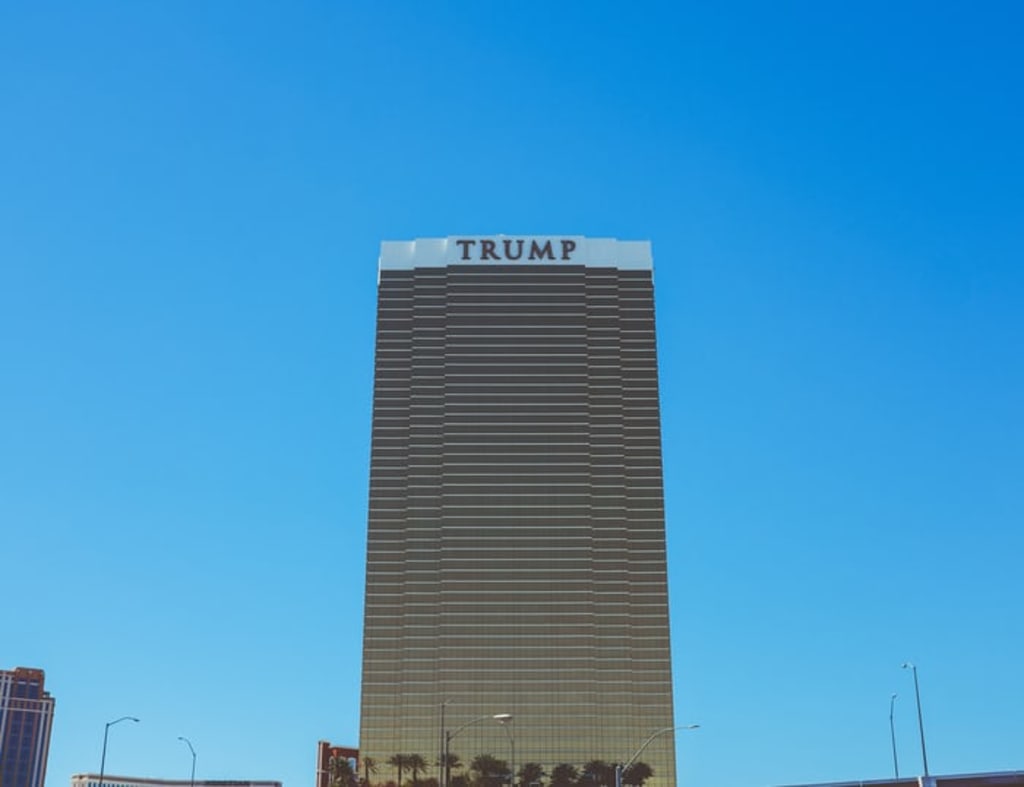The Conservative Contradiction
Individualist or statist: social media moderation exposes the ideological schism

There are very few people in Western capitalist societies, I would allege, that would disagree with a simple observation: Orwellian allusions are the great cliché of our times. At present, it is conservatives who retread those familiar steps to the well of '1984' and 'Animal Farm', bucket scraping violently against the gravel bottom as they reach that exhausted font. The storming of the Capitol in the United States has provoked many consequences for the purveyors of conservative thought; by virtue of their relative ascendance in political life, those same consequences have, unfortunately, a filtered effect on the rest of us. But there is one outcome which has filled the mouths and minds of talking heads across the globe: the President of the United States has been permanently banned from Twitter.
Almost universally among the President's core and tangential support, the move has been received negatively. But within the anger, have been sighted more conservative emotions: a form of anxiety, a resigned confusion, and sibylline pronouncements about the future of political speech. I say these are more "conservative" emotions due to that ideology's fundamental nature; a dualistic, almost Manichean contest between a love of stasis and a fear of momentum commands all conservative thought at its most fundamental level. And it is this duel which is made prominent by the actions of Twitter - and other major social media companies - this week.
For centuries, perhaps millennia, there has been a 'common knowledge' link between the beliefs of conservatism and the practice of government. Where governance has always been the art of power dissemination, conservatism has ostensibly sought to limit its pooling in the hands of elected officials or bureaucrats. Freedom, as it appears to the conservative, is the freedom to participate in the traditions and cultural productions of a given society, to perpetuate them, and to do so unabused by concentrated power. It is a thought process that necessitates security analysis: the status quo becomes the referent object, those seeking (undue) change are threats, and those unconvinced by the virtues that dictate their lives are necessary, if unfortunate, risks. This is the claim. In economic terms, forms of organisation have always gone hand-in-hand with this political thought. As times have shifted, economic fashion has also moved; there is perhaps no point to delving into the details of mercantilism or classical economics as it pertains to the conservative ideology.
It is enough to say, very plainly, that the claims made above are generally abandoned with haste upon assumption of power. Conservative reverence for tradition is insular and disparages external, competing traditions. They have correctly determined that, in the absence of unity and cooperation, cultural groups are in broad and often unknowing contestation for supremacy. The masses, often unwedded to the cultural diktats that enjoy popularity with the conservative elite, are to be controlled, for their own good. The progressives, who seek to introduce political momentum into the world, must be controlled or pacified. The economic reality of conservativism, in general and material terms, is an exercise in the preservation of inequality. At times, the delicate stasis created by these systems is ruptured: the creation of the nouveau riche capitalists of the 18th and 19th centuries temporarily upset the ascendancy of the aristocrats but settled into immobility once again, with a financial aristocracy. It was a phenomenon identified by James Connolly: "A people poisoned by the adulation of royalty can never attain social freedom. The mind accustomed to political kings can easily be reconciled to social kings – capitalist kings of the workshop, the mill, the railway, the ships and the docks."
And it is in consideration of all of these points that we confront the contradictions of modern conservatism. The economic system underpinning it has adopted a new and vague name, "neoliberalism", but the familiar dilemmas remain. Freedom under conservativism has increasingly become freedom for capital and for markets, serfdom for the masses. Precarity is sold by the name of "flexibility", invasion and destabilisation are redefined as "liberation" or "democracy promotion", and unaffordable tenement houses are now trendy "communal living areas". And over all of this is the conservative mantra that all of this is preferable to the undefined "alternative"; how we must all fear that alternative that seeks to destroy us all. None of this is new analysis. It has persisted for decades, bringing us to our current moment.
Capitalist conservatives have wedded themselves to the idea that public and private enterprises are separate realms; another writer may say "non-overlapping magisteria". It is an idea that has saved many from cruel fates, as this liberal injection has seemingly aided in keeping mainstream conservatism slightly beyond the grip of fascism. But again, this is an idea that fails in practice. As social media companies banned President Trump, the newfound guardians of state power swung their outrage towards the private sector. A Liberal MP advocated for the creation of a "public body" to oversee decisions of banning or censorship on these private platforms. Pained overtures from around the globe warned of creeping mass censorship and the destruction of freedom of expression. And all on behalf of a man to whose house is annexed a special room for disseminating (dis)information to the media, which occurs daily.
The crux of the issue is that conservatives must confront this prime contradiction in their thought. Whilst they have always failed to maintain their values in cohesive union with governance, they have now bared a severe confusion in their political ethos. A reliance on overdrawn allusions to misunderstood authors will not soothe this contradiction. There must be a confrontation: either it is the barons of digital media - and of industry at large - who command political power, or it is the state. Does the conservative hold out against the encroachment of Elon Musk and others into authority, or do they give in? For those of us on the left, this is an imperfect dichotomy; the question can, for us, be reframed as "Whose firm stick do you want across your back?". But for conservatives, it is a brutal, internal ideological conflict. Where a victor is not possible, I fear they will simply converge the two. The power of the conservative state has long depended on the economic might and influence of corporations. Hedged bets cannot easily be refunded.






Comments
There are no comments for this story
Be the first to respond and start the conversation.